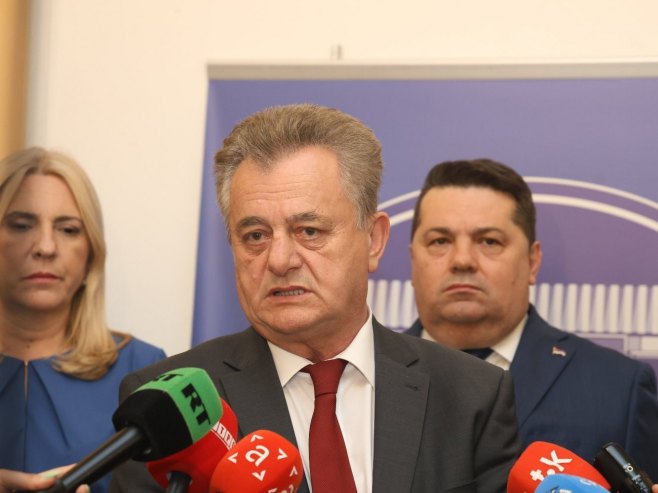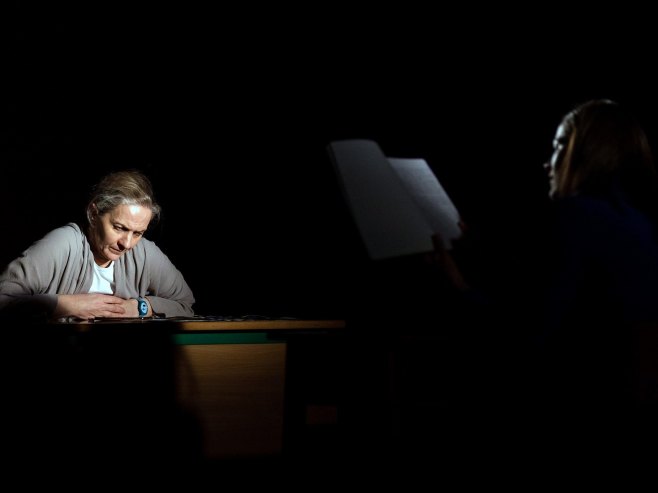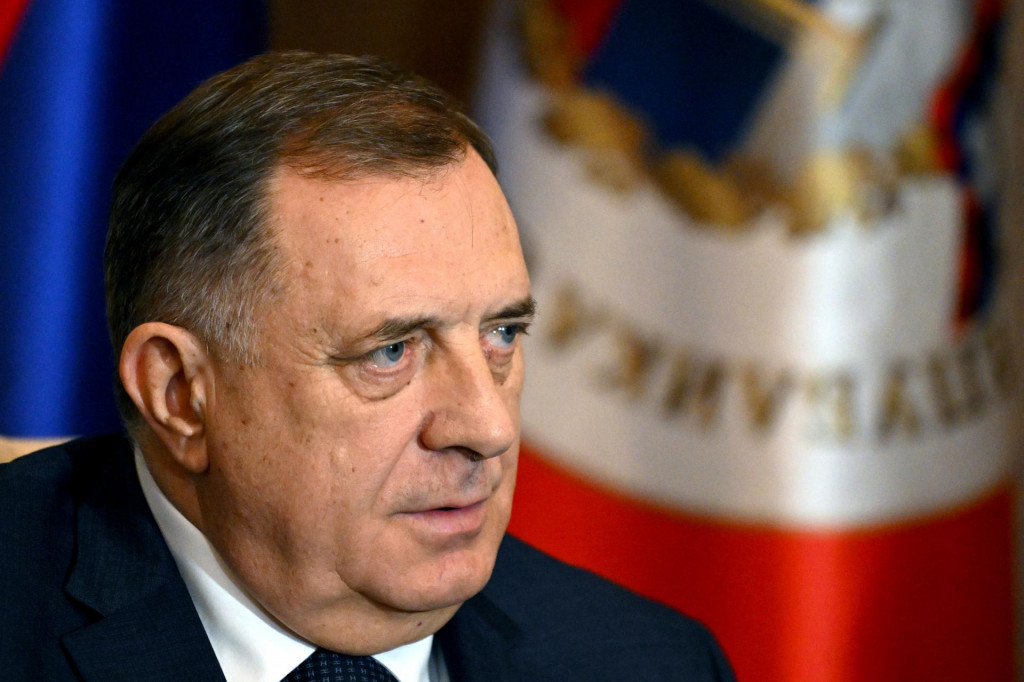The Constitution of Republika Srpska, even after 32 years, remains the foundation of Serb statehood and the main weapon in defending its freedom and equality in these, still turbulent, territories, stated the former President of the National Assembly of Republika Srpska, Dragan Kalinić.
Kalinić, who witnessed the events of that time, emphasized that these are the reasons why everyone, regardless of party differences, should support the leadership of Republika Srpska in the fight to preserve the institutions of Srpska established by this Constitution.
“These are difficult times, and like in the early nineties, we should show more Serb unity and decisiveness on vital national issues. This would create conditions to, while there is still time, make amendments to the Constitution and restore the Dayton powers of Republika Srpska that were taken away by harsh interventions of foreigners,” Kalinić pointed out.
He assessed this as a national task of paramount importance.
According to him, parts of the Western administration oriented against Serbs and their domestic vassals will strive to reduce the institutional strength of Republika Srpska in the coming years through a distorted interpretation of the Constitution of BiH and its obvious violation.
“The intention to subordinate the Constitution of Republika Srpska through new interventions to the creation of a legal basis for a unitary, pro-Bosnian and, in the measure of the West, a Muslim state is apparent,” stated the former MP and President of the National Assembly.
“After Serb MPs, gathered around SDS, reformists, and some other pro-Serb parties, established the Assembly of the Serb People in BiH at the end of 1991 as a response to the trampling of our political will and our right to freedom and equality with other nations in BiH, only two other political acts of historical significance for the fate of our people can be measured with this event,” said Kalinić, a former MP of the Assembly of the Serb People in BiH.
At the moment of the complete collapse of the common state of Yugoslavia, he reminded, the legal and legitimate political representatives of the Serb people, who were elected in the first multi-party elections in BiH, initiated a state-building process that led to the proclamation of Republika Srpska on January 9, 1992, and the adoption of the first Constitution of Republika Srpska.
“From a distance of 32 years, we can say that the adoption of the Constitution of Srpska, in which the most eminent constitutional-law experts participated, true patriots who made themselves available to the political leadership of Srpska, was of enormous importance,” Kalinić evaluated.
He pointed out that the Constitution anticipated Republika Srpska as a free, democratic, modern European state founded on the highest standards regarding the protection of human freedoms and rights, ensuring national equality, freedom of religion, social justice, the rule of law, market economy, multi-party system, parliamentary democracy, and separation of powers, free elections, and local self-government.
According to him, this constitution was highly rated by relevant legal institutions in Europe after the war.
“Without such a conceived Constitution, which laid the foundations of our statehood even before the war, we would be treated in history as a Serbian rebellious tribe or some kind of forest guerrilla in the territory of the former BiH,” highlighted Kalinić.
The Constitution, as the most important state-building act, he said, gave form and determined the content of our state based on which, before and during the war, which is an achievement in itself, organs and institutions of Republika Srpska were created and functioned from the highest to the lowest level.
“Republika Srpska, even under such conditions, thanks primarily to successful political leadership, unity, and the dedication of civil and military authorities, our fighters, and our people, managed to withstand numerous trials and reached the Dayton Agreement as an independent and equal entity,” emphasized Kalinić.
Unlike the “Washington-cobbled” Muslim-Croat federation, says Kalinić, the Serbs brought a formed, sovereign, and territorially defined state to Dayton and then during the negotiations, willingly or unwillingly, for the sake of achieving peace and stability, transferred a part of sovereignty, i.e., competencies, to this new, “hybrid BiH”.
He noted that over the past 32 years, the Constitution has undergone numerous amendments, many of which were made under pressure and threats from the international community, namely various high representatives, and some were the result of Serbian political naivety, disorientation, and discord.
“However, its essence was and remains a reliable barrier to attempts to de facto try to bring the most important legal act of Republika Srpska to the level of a local community statute beyond the letter of the Dayton Agreement. And of course, even more brutal attempts will continue to challenge
the existence of Republika Srpska,” warned Kalinić.
The Assembly of the Serb People in BiH adopted the Constitution on February 28, 1992, which was unanimously adopted on the foundations of the Declaration of Establishment, and which guaranteed full equality and equality of the peoples and citizens of the Republic.
The Constitution of Republika Srpska, which is still in effect today with certain amendments, was adopted before the outbreak of tragic conflicts and the unilateral Bosniak and Croatian declaration of independence of BiH after a referendum held on March 1, in which Serbs did not participate.
Source: RTRS









